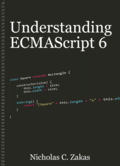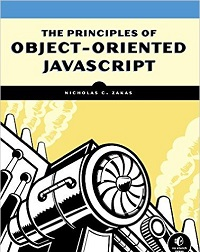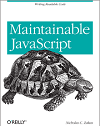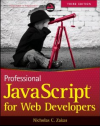Being right doesn’t matter
Software engineers are an interesting bunch. On the plus side, many are willing to work for free on projects that they believe are worthwhile. I’ve found software engineers to be incredibly charitable not only in donating their time and knowledge but also in donating their money. On the other side, software engineers tend to be very direct and frequently confrontational. After working in software for over a decade, and spending way too much time on the Internet, I’ve come to believe that the central characteristic of the less complimentary software engineer persona is wrapped around a single concept: being right.
We love to be right and love it even more when we can prove to people how right we are. The Internet is filled with software engineers on mailing lists, Twitter, Hacker News, and elsewhere striving to show everyone that they are right. The pursuit of rightness often leads into quarrels that degrade quickly into full-scale arguments. Unfortunately, those arguments tend to turn nasty more frequently than not even when a voice of reason appears. The drive to be right is so great that we sometimes lose ourselves in the process.
I use the term “we” intentionally because I find myself falling into the same category. I’m eternally grateful to my former manager at Yahoo who gave me some excellent advice. Being in a leadership role meant being involved in a lot of arguments and also being the one to make the final decision. The advice my manager gave me went something like this:
Every once in a while, let someone else win [an argument]. No one likes losing every argument. You may be right, but that’s not the most important thing. Have a clear idea in your mind about the things that matter to you the most and don’t compromise on those. But for things that don’t matter to you all that much, let someone else win the argument.
That conversation was a revelation to me. He was absolutely right. In the spirit of rightness, I had allowed myself to become overly argumentative and saw challenging questions as questioning my rightness. For some reason, software engineers have a hard time dealing with people who are challenging their rightness.
I left that conversation and went back to my cube to think about the things that really mattered to me. What I found was a short list of things that really matter to me. The list was much shorter than I thought it would be and I realized that there’s a big difference between having an opinion and being right. There’s also a difference between being right and needing to prove that you’re right.
Software engineers seem to have an incessant need to prove that they are right. I’m not sure why that characteristic is so strong in our group. Maybe it’s to make up for the years of not speaking up for ourselves that many of us introvert nerds experienced for the first 12 to 15 years of our life. Maybe there’s another reason, I just don’t know. But the constant fighting to prove that we are right (and in turn, that someone else is wrong) leaves a lot of collateral damage.
I’ve lost respect for people over the years when they were unable to step back from their quest for rightness and converse with me as a peer. I’m not just talking about Internet trolls. I’ve had people I respected call me names, question my intentions and experience, and far worse. And every time that happens, I get a sinking feeling in my stomach. Is proving you are right really so important that you need to tear people down?
Conversations are not competitions. Just because someone else is right doesn’t mean that you are wrong. An opinion that differs from yours is not an attack on your rightness. Failing to see that often leads you in the wrong direction. That’s why one of my all-time favorite speeches comes from Steve Jobs when he returned to Apple. Here’s the relevant part:
And if we want to move forward and see Apple healthy and prospering again, we have to let go of a few things, here. We have to let go of this notion that for Apple to win, Microsoft has to lose. We have to embrace the notion that for Apple to win, Apple has to do a really good job…the era of setting this up as a competition between Apple and Microsoft is over as far as I’m concerned.
Jobs was correct in that Apple was spending too much time competing with Microsoft and not enough time focusing on themselves. Microsoft didn’t have to lose for Apple to win, a statement that we now know to be absolutely true. The cease-fire between Apple and Microsoft did both companies some good. When they both stopped trying to prove the other was wrong, they were both free to prosper.
At the end of the day, there is very little value to being right. You don’t acquire rightness points and just how frequently you are right doesn’t end up on your resume. What actually matters are the relationships you have. You can only go as far as the people who want to communicate with you. Being right actually hurts if it interferes with your ability to interact with people. As my former manager said, you should definitely know what is important to you and be willing to fight for it. But let go of the pedantic points you are trying to make – those just don’t matter.
And don’t let people bate you into defending your rightness. This happens so frequently on the Internet that it’s hard to avoid. Even though I’m much better at not taking the bait, I still get caught up from time to time without noticing it. When someone is challenging you to a rightness competition, it’s okay to not respond. Not responding, or telling that person you aren’t willing to debate the point, is the best way to keep that person as a potential ally. The other person might interpret that as you admitting that they are right and you are wrong, but who cares? In competitions for rightness, there is never really a winner.
So keep an eye on your behavior and the behavior of others both on the Internet and in person. Look out for rightness challenges and realize that it’s not your job to “correct” every person you come into contact with. Most topics are just not that important. Give advice freely, listen to the perspective of someone else, and realize that you both can be right even while disagreeing.
Disclaimer: Any viewpoints and opinions expressed in this article are those of Nicholas C. Zakas and do not, in any way, reflect those of my employer, my colleagues, Wrox Publishing, O'Reilly Publishing, or anyone else. I speak only for myself, not for them.





